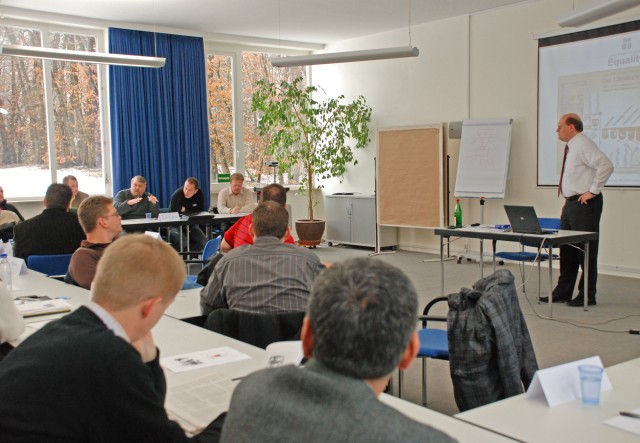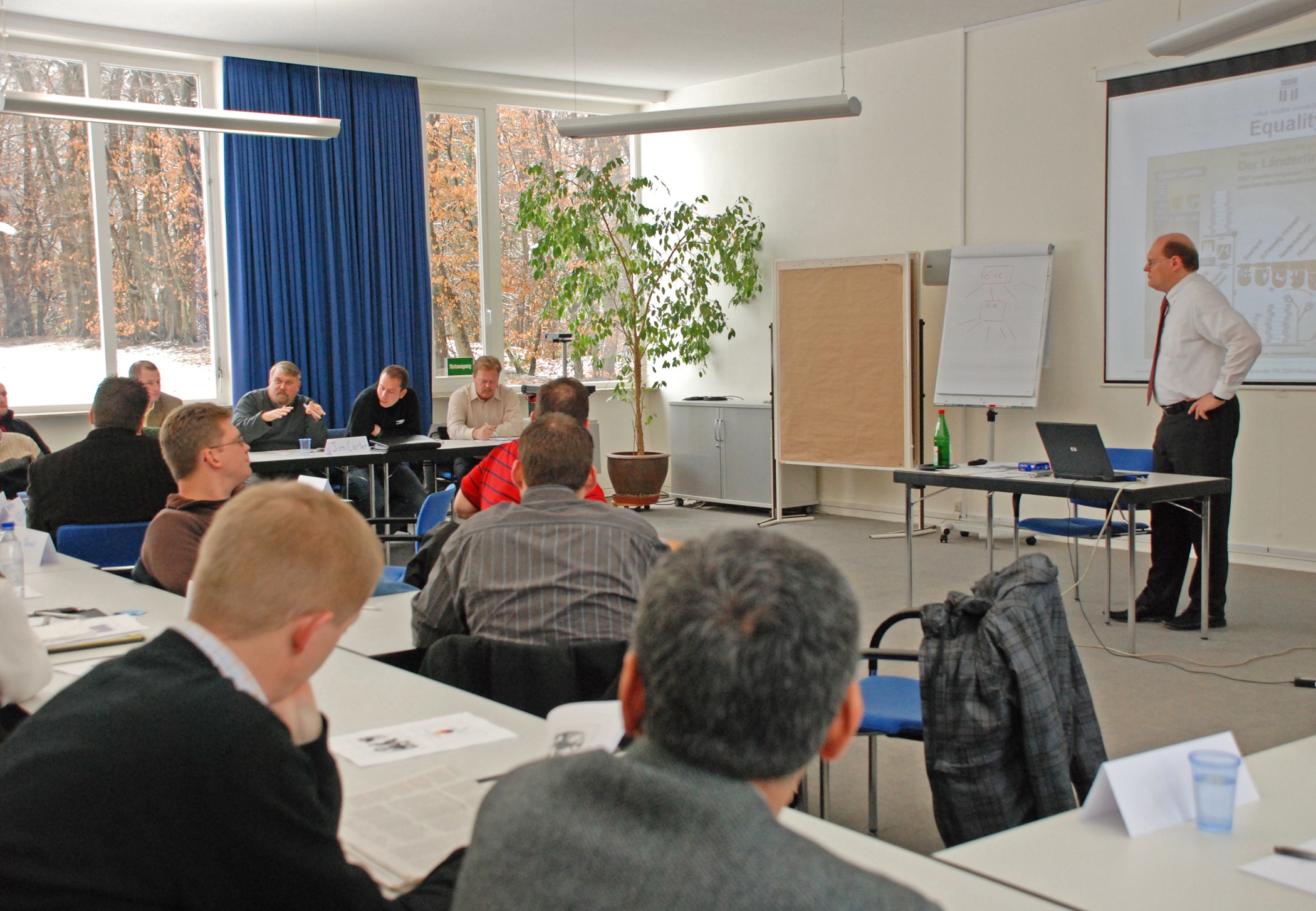
WIESBADEN, Germany - As world political and economic systems become more integrated, and the U.S. presence in Europe endures, there is a growing desire to know more about the host country.
There is an institution here that allows Americans an insightful look into the German political, social and economical construct while preserving low-level relations between Germany and the United States.
Haus Rissen Hamburg, International Institute for Politics and Economics, founded in 1954, is one of the leading German think tanks for German-U. S. relations. It organizes a five-day seminar that is a forum for progressive thought and discussion in a national and global framework.
"What we are doing here is really on the grassroots level," said Dr. Philipp-Christian Wachs, Haus Rissen Hamburg managing director. "Our goal is that the participants have open minds about German and U.S. relations, and politics and economy at the end of the seminar. It's the only thing we can achieve in one week."
The institute extends invitations throughout the year to U.S. servicemembers and Department of Defense civilian employees stationed in Germany. Participants sit with German military counterparts in discussion forums led by subject matter experts in areas of politics and foreign affairs, national security, history and economics.
"I have lived in Germany most of my adult life. I have a degree in German studies and I welcome any opportunity to learn more about the German political culture," said Eugene Hickman, U.S. Army Garrison Wiesbaden Education Services officer.
"I intend on remaining in Germany and I wanted to gain a better understanding of the trade relationship and NATO's future as the European Union grows and evolves into a single trade and economical world power," said Carroll Randall, a garrison Directorate of Logistics Plans and Operations specialist.
Though the focus is on presenting Germany to foreigners, even host nation citizens find benefits in attending.
"I wanted to get back into speaking English and meeting new friends again. ... As for military, it's making bonds and forming lasting friendships," said Torben Dickel, an officer in the Bundeswehr (German armed forces).
Lodging and daily itineraries are purposely ordered to encourage extracurricular discussion. Guests stay at the institution, with breaks and meals strategically scheduled to allow attendees numerous opportunities to talk about the subject matter presented.
"Opinions and different perspectives are always welcome at Haus Rissen Hamburg," said Wachs. "What tend to be most popular are discussions during the breaks and at dinner."
Guests are encouraged to make the most of additional opportunities in mixed company.
"Equally important was the opportunity to get to know German officers on a personal basis," noted Hickman.
"It was rewarding because it allowed me opportunity to interact with people from diverse agencies with different opinions," added Randall.
Seminar administrators say the expectations of participants are generally the same at the start of each session.
"Americans usually have a high motivation to hear about the security policy and to know more about Germany because they realize their short time in Germany," said Wachs. "They are always surprised to see how this social market economy can work at all."
Because forum discussions are stimulated by the current global events, officials are often witness to dynamic seminar sessions.
"The most frustrating time was during the beginning of the Iraq war. ... Americans had doubt of German-U.S. relations," said Dr. Eckard Bolsinger, head of the research program for Haus Rissen Hamburg, and who was also on staff after the Sept. 11, 2001, attacks. "We stand for good transatlantic relations, and we focus on keeping the core of our transatlantic relationship intact. Things are getting better now."
While Haus Rissen Hamburg officials simply wish participants leave with a broader perspective, attendees tend to take away a little more.
"The seminar provided me the opportunity to get the most up-to-date information on the direction of German politics, government and international relations. The lectures on the German market economy were especially helpful to me," said Hickman.
"It was a review of history, it allowed me to see the connection of the economy," said Dickel. "The talk is that our way will take us to a unified Europe, and attending this course allows me to get more understanding on that."
"I recommend Haus Rissen Hamburg to any American here to enhance awareness that there is more to our purpose for being in Germany. We are delegates of the U.S. government, and we should always be mindful of improving German-American relations," said Randall.

Social Sharing